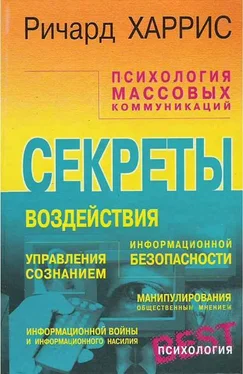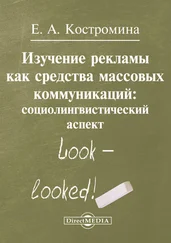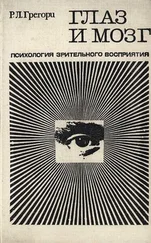Hawkins, R. P.. Kirn, Y.-H., Pingree, S. (1991). The ups and downs of attention to television. Communication Research, 18, 53–76.
Hawkins, R. P., Pingree, S. (1990). Divergent psychological processes in constructing social reality from mass media content. In: N. Signorielli M. Morgan (Eds.). Cultivation analysis (p. 35–50). Newbury Park , CA : Sage.
Hayes, D., Birnbaum, D. W. (1980). Preschoolers' retention of televised events: Is a picture worth a thousand words? Developmental Psychology, 16, 410–416.
Healy, J. (1990). Endangered minds: Why our children's don't think. New York : Simon Schuster.
Hearold, S. (1986). A synthesis of 1043 effects 6f television on social behavior. In: G. Comstock (Ed.). Public communication and behavior (Vol. I, p. 65–133). Orlando , FL : Academic Press.
Heath, R. L., Bryanl, J. (1992). Human communication theory and research: Concepts, contexts, and challenges. Hillsdalc , NJ : Lawrence Eribaum Associates.
Heath, Т . В ., Mothersbaugh, D. L., McCarthy, M. S. (1993). Spokesperson effects in high involvement markets. Advances in Consumer Research, 20, 704–707.
Hebditch, D., Anning, N. (1988). Porn gold: Inside the pornography business. London : Faber Faber.
Heritage, J. (1985). Analyzing news interviews: Aspects of the production of talk for an overhearing audience. In: T. A. van Dijk (Ed.). Handbook of discourse analysis (Vol. 3. p. 95–117). London : Academic Press.
Herman, E. S., Chomsky. N. (1988). Manufacturing consent: The political economy of the mass media. New York : Pantheon.
Herman, E. S., O'Sullivan, G. (1989). The terrorism industry: The experts and institutions that shape our view of terror. New York: Pantheon.
Hinck, E. A. (1992). Enacting the Presidency: Political argument. Presidential debates, and Presidential character. Westport, CT: Praeger.
Hirschberg, M. S. (1993). Perpetuating patriotic perceptions: The cognitive function of the Cold War. Westport, CT: Greenwood.
Hoover, S. M. (1988). Mass media religion. Newbury Park, CA: Sage.
Hoover, S. M., Lundby, K. (Eds.) (I 997). Rethinking media, religion, and culture. Thousand Oaks, CA: Sage.
Hopkins, R., Fletcher, J. E. (1994). Electrodermal measurement: Particularly effective for forecasting message influence on sales appeal. In: A. Lang (Ed.). Measuring psychological responses tomedia (p. 113–132). Hillsdale. NJ: Lawrence Eribaum Associates.
Howitt, D. (1982). Mass media and social problems. Oxford, England: Pergamon Press.
Huesmann, L. R., Eron, L. D. (1986). Television and the aggressive child. Hillsdale, NJ: Lawrence Eribaum Associates.
Huston, A. C., Wright. J. C. (1987). The forms of television and the child viewer. In: G. A. Comstock (Ed.). Public communication and behavior (Vol. 2, p. 103–159). New York: Academic Press.
Jiyama, Р ., Kitano, H. H. L. (1982). Asian-Americans and the media. In: G. L. Berry C. Mitchell-Kernan (Eds.). Television and the socialization of the minority child (p. 151–186). New York: Academic Press, Ilola, L. M. (1990). Culture and health. In: R. W. Brislin (Ed.). Applied cross-cultural psychology (p. 278–301). Newbury Park, CA: Sage.
Intons-Peterson, M. J., Roskos-Ewoldsen, B. (1989). Mitigating the effects of violent pornography. In: S. Gubar J. Hoff-Wilson (Eds.). For adult users, only. Bloomington: Indiana University Press.
Jackson, D. Z. (1989, January 22). Calling the plays in black and white. The Boston Globe, p. A30–A33.
Jacoby, J., Hoyer, W. D. (1987). The comprehension and miscomprehension of print communication: A study of mass media magazines. Hillsdale, NJ: Lawrence Eribaum Associates.
Jamieson, K. H. (1992). Packaging the Presidency: A history and criticism of Presidential campaign advertising (2nd ed.) New York: Oxford University Press.
Jamieson, K. H., Campbell, К . К . (1992). The interplay of influence: News, advertising, politics, and the mass media (3rd ed.). Belmont, CA: Wadsworth.
Janis, I. L. (1980). The influence of television on personal decision making. In: S. B. Withey R. P. Abeles (Eds.). Television and social behavior (p. 161–189). Hillsdale, NJ: Lawrence Eribaum Associates.
Jhally, S., Lewis, J. (1992). Enlightened racism: The Cosby Show, audiences, and the myth of the American dream. Boulder, CO: Westview Press.
Johnson, D., Rimal, R. N. (1994, July). Analysis of HIV/AIDS television public service announcements around the world. Paper presented at International Communication Association meeting, Sydney, Australia.
Johnson-Cartee. K. S., Copeland. G. A. (1991). Negative political advertising: Coming of age. Hillsdalc, NJ: Lawrence Eribaum Associates.
Johnson-Cartee, K. S., Copeland, G. A. (1997). Manipulation of the American voter. Political campaign commercials. New York: Praeger.
Johnston, J., Ettema. J. (1982). Positive images: Breaking stereotypes with children's television. Beverly Hills, CA: Sage.
Johnston, J., Ettema, J. S. (1986). Using television to best advantage: Research for prosocial television. In: J. Bryant D. Zillmann (Eds.). Perspectives on media effects (p. 143–164). Hillsdale, NJ: Lawrence Eribaum Associates.
Jowett. G. S. (1993). Toward a propaganda analysis of the Gulf War. In: B. S. Greenberg W. Gantz (Eds.). Desert Storm and the mass media (p. 76–98). Cresskill, NJ: Hampton Press.
Jowett, G. S., Linton, J. M. (1989). Movies as mass communication (2nd ed.). Newbury Park, CA: Sage.
Joy, L. A., Kimball, M. M., Zabrack, M. L. (1986). Television and children's aggressive behavior. In: Т . М . Williams (Ed.). The impact of television: A natural experiment in three communities (p. 303–360). Orlando, FL: Academic Press.
Kaid, L. L., Gerstle, J., Sanders, K. R. (Eds.). (1991). Mediated politics in two cultures: Presidential campaigning in the United Stales and France. New York: Prager.
Kaid, L. L., Holtz-Bacha, C. (Eds.). (1995). Political advertising in Western democracies: Parties and candidates on television. Thousand Oaks, CA: Sage.
Kardes, F. R. (1992). Consumer inference: Determinants, consequences, and implications for advertising. In: A. A. Mitchell (Ed.). Advertising exposure, memory, and choice. Hillsdale, NJ: Lawrence Eribaum Associates.
Kelly, H. (1981). Reasoning about realities: Children's evaluations of television and books. In: H. Kelly H. Gardner (Eds.). Viewing children through television. San Francisco: Jossey-Bass.
Kern-Foxworth, M. (I994). Aunt Jemima, Uncle Ben, and Rastus: Blacks in advertising, yesterday, today, and tomorrow. Westport, CT: Praeger.
Key, W. B. (1989). The age of manipulation. New York: Holt.
Kiesler, S. (Ed.). (1997). Culture of the Internet. Mah-wah. NJ: Lawrence Eribaum Associates.
Kimball, M. M. (1986). Television and sex-role attitudes. In: T. M. Williams (Ed.). Theim-pact of television: A natural experiment in three communities (p. 265–302). Orlando, FL: Academic Press.
Kintsch, W. (1977). On comprehending stories. In: P. Carpenter M. Just (Eds.). Cognitive processes in comprehension. Hillsdale, NJ: Lawrence Eribaum Associates.
Klatell, D. A., Marcus, N. (1988). Sports for sale: Television, money, and the fans. New York: Oxford University Press.
Knill, B. J., Pesch, M., Pursey, G., Gilpin, P., Perloff, R. M. (1981). Still typecast after all these years? Sex role portrayals in television advertising. International Journal of Women's Studies. 4, 497–506.
Kopkind, A. (1993, May/June). From Russia with love and squalor Utne Reader, p. 80–89.
Kosicki, G. M. (1993). Problems and opportunities in agenda-setting research. Journal of Communication, 43(2). 100–127.
Kottak, C. P. (1990). Prime time society: An anthropological analysis of television and culture. Belmont, CA: Wadsworth.
Krafka, C. L. (1985). Sexually explicit, sexually violent, and violent media: Effects of multiple naturalistic exposures and debriefing on female viewers. Unpublished doctoral dissertation. University of Wisconsin, Madison. Kraus, S. (Ed.). (1962). The great debates. Bloomington, IN: Indiana University Press.
Читать дальше












